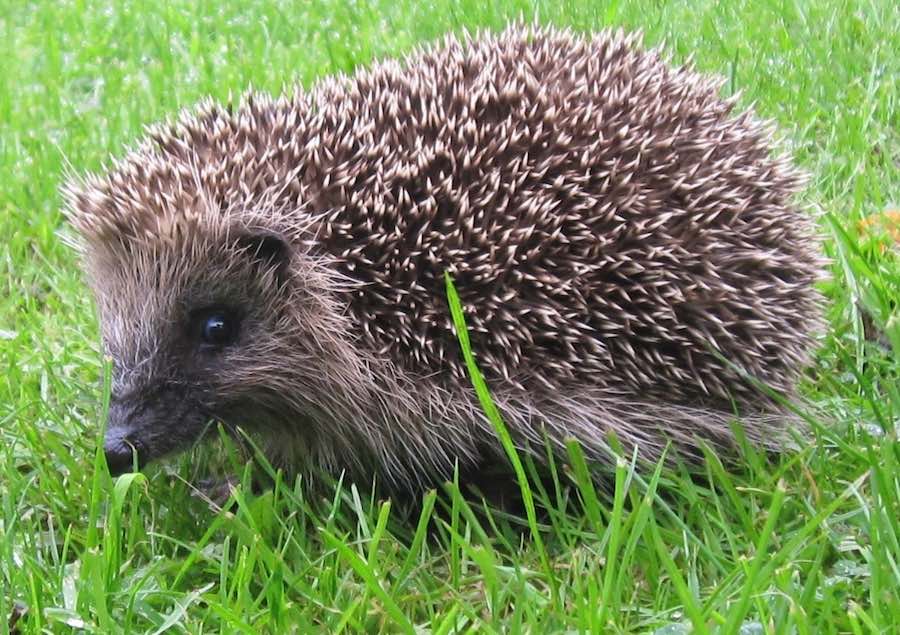Time to put a stop our reliance on pesticides
- 5 June 2022
-
 Meriel Harrison
Meriel Harrison
- Birds, Insects
60 years on from the publication of Rachel Carson’s Silent Spring, why are we still poisoning wildlife with pesticides?
In 1962 a book was published that proved to be a landmark in society’s awareness of the ways in which humans were damaging the natural world. Rachel Carson, an American biologist, had observed the way that widespread use of new chemical insecticides such as DDT was poisoning entire food chains resulting in catastrophic impacts for birds and other species. Her book, Silent Spring, became a catalyst for the modern conservation movement and the use of DDT was eventually banned. But although pesticides have changed over the years, they have certainly not gone away: the average number of active ingredients being applied to an average field of crops in the UK increased from 12.8 per ha in 2000, to 15.9 per ha in 2016.
Pesticides are toxic substances used to destroy plants, animals or fungi where they are considered to be ‘pests’. They are widely used in farming to kill off insects and plants that might damage or compete with crops, and to control some plant species that are classed as ‘injurious weeds’ in or near livestock pastures. A wide range of pesticides, particularly insecticides and herbicides (weedkillers), are also widely sold and heavily marketed to the public for use at home and in the garden.

There is growing evidence of the significant environmental problems that are caused by our heavy use of pesticides in the UK. Earlier this year a ban on metaldehyde slug pellets came into force in recognition of their toxic effects on garden birds and mammals, including hedgehogs. The use of neonicotinoid pesticides has been highly restricted across Europe in recent years as clear evidence emerged of their devastating impacts on bees and other pollinators. Birds of prey, including the barn owls, buzzards and kestrels we are lucky to have living locally, are at risk of poisoning from rodenticides intended to control rat populations. Even the pesticide flea treatments widely used on dogs and cats are now known to be contaminating rivers and damaging ecosystems; and drugs used by some farmers to treat worms and parasites in farm animals have been shown to have devastating impacts on dung beetles, which is troubling news for the many bat and bird species that rely on these beetles as a key source of food.
There is increasing interest in so-called ‘cocktail effects’ from combinations of different pesticides being used together in the environment, and more research is needed to understand these effects. While the limitations of research to date mean that there is no clear evidence of pesticides causing problems for human health, concerns remain around the effects of long-term exposure to these substances.
There are lots of ways that we can take action to reduce and minimise use of pesticides:
- Whenever possible, avoid using pesticides in your home and garden. There is lots of great advice out there about gardening without the use of pesticides, and you’ll be rewarded by knowing you’re creating a wildlife-friendly environment. Birds, hedgehogs, frogs and toads are all natural predators of slugs and snails, so gardening with wildlife in mind is a win-win.
- If you can, grow your own fruit and vegetables or support food producers who use fewer pesticides. A far smaller number of pesticides are allowed to be used in organic farming compared to conventional farming, and it is estimated that if all farming was organic, the amount of pesticides being sprayed would decrease by 98%. Eating food that has been produced using fewer pesticides also reduces your own consumption of pesticide residues.
- Sign and share this petition calling for North Somerset Council to stop spraying pesticides. Many Councils including Bath and North East Somerset have now banned the use of glyphosate weedkiller, as part of their response to the climate and ecological emergency, but North Somerset Council continues to use contractors to spray herbicides in our communities. You can also write to your local Councillor and Parish Council asking them to stop spraying herbicides, and to use alternative methods where there is a genuine need to manage vegetation.
For more information about pesticides and wildlife, there are useful resources available from the Pesticides Action Network (PAN) and Friends of the Earth.
© Copyright YACWAG, or original authors. All rights reserved. | Registered charity 1076362 | Privacy policy | Cookie policy | Terms & Conditions |Web design: StanfordGraphics


